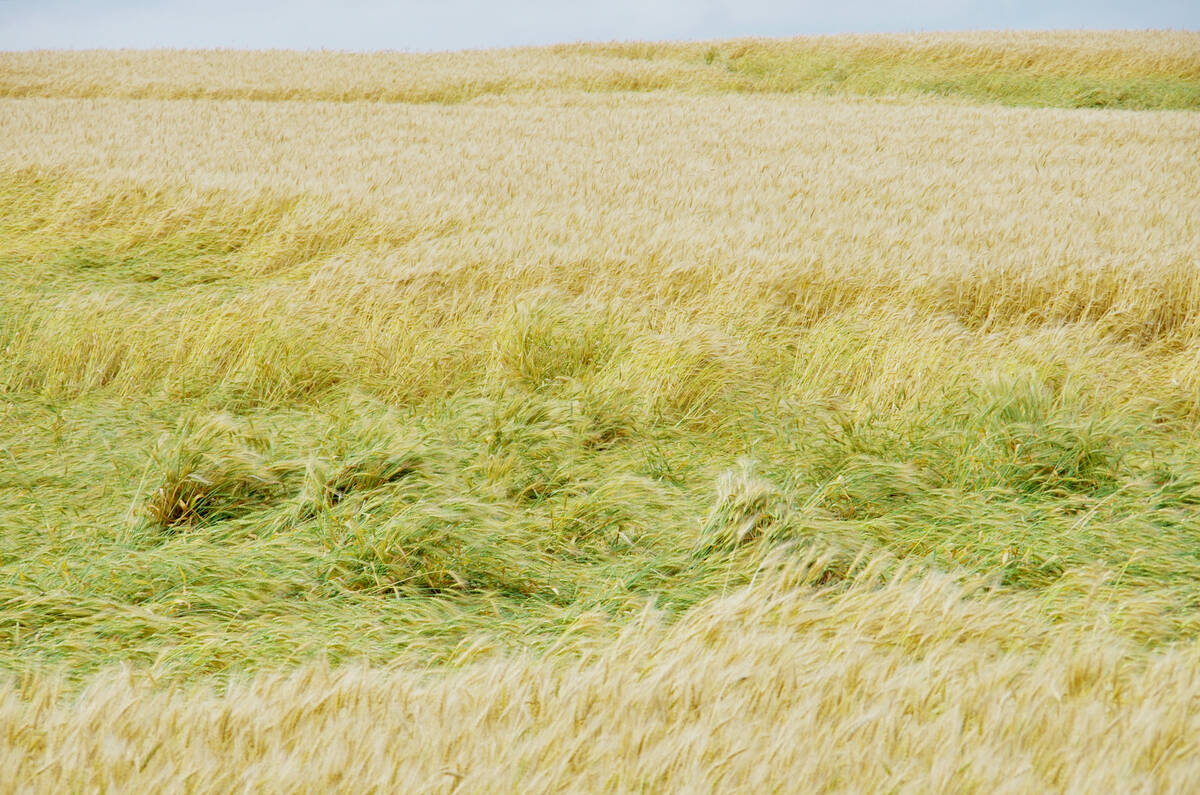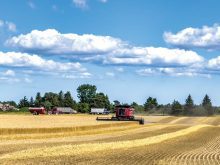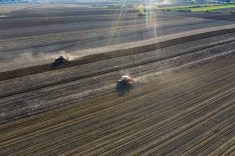There is a scene in the book The Professor and the Madman: A Tale of Murder, Insanity and the Making of the Oxford English Dictionary that is too graphic for me to write about openly.
This work by Simon Winchester is one of my favourite reads and it galvanized in me a deeper appreciation for language, the subjective nature of meaning and how the definitions we either explicitly or implicitly attribute to words changes rapidly.
I don’t want to write about sustainability, but I have to. It is the thing, the elephant in the room, the topic of every panel at every farm show, the focus of every organization, the commitment of all levels of government. Ignoring the word and its governing role in agriculture would be foolish.
Read Also

Cereal lodging isn’t just a nitrogen problem
Lack of copper in the soil can also lead wheat and other cereal crops to lodge during wet seasons on the Canadian Prairies.
That said, like most farmers in North America, and, perhaps, the world, I have heard and read the word “sustainability” too many times. Its power as a vehicle for change is diminishing as a result.
I don’t often walk up to the mic following panels at farm events. I am a backbencher, a writer. Most talks on sustainability are not interesting. They consist of calls for farmers to take the concept seriously if Canada is to stay in good standing with its current spate of crop customers. Fine.
They talk about looming and current government policies and how if farmers don’t take control of changing their own practices, Trudeau will do it for them. Again. Fine.
Also, these sustainability talks often appeal to emotion with pledges to keep the farm in good shape for future generations, and, for me, this seems out of character for many ag events.
It’s like going to a hockey game, expecting to see a known collection of people play the sport of hockey and being gobsmacked by the two minutes of soccer they’ve incorporated into their game.
At first, you don’t believe it. Then, you’re disgusted by it. You become angry over what you believe is an abomination of a sport that was perfectly fine without Connor McDavid kicking around a soccer ball for a few minutes every game.
Then, after months of seeing it during every game, you accept the changes that have been made to the sport you grew up loving, but you change the channel when they play soccer because you know they’re not very good at it.
I sometimes cringe and/or walk out of the room during panel discussions on the topic of sustainability. They tend to sound more like government relations jargon than content that will move the agricultural needle in the direction it needs to move.
Farmers need to improve, but show us that using data and graphs, and through ways that make sense and are clear. Ag shouldn’t play soccer when hockey is what it’s trained to play.
I believe that industry needs to put the word “sustainability” on the products and policies it produces. That is political. I believe that my practices on the farm could and should improve and likely yours could and should, as well. That is tangible sustainability.
I also believe that continued talk of sustainability has become a veil over the growing chasm between agronomic research, complicated government policies and technical analysis and farmers.
I believe farmers would be more sustainable if they better understood and had better access to the information their own industry is generating than if they believed in the concept of sustainability or not.
Should we continue talking about sustainability, unpacking the concept in large convention-like settings, or should we be presenting data, research and analysis in clearer ways that serve to build capacity among farmers, like myself, to better utilize the large pool of resources available to us?
Sustainability — the ability something has to sustain itself over a long period of time — is not underpinned by emotion or a philosophical trend/concept, it is based on data, on facts.
Treating it as a concept, as I have heard done time after time, is not doing it any favours, especially among an older generation that connects such things to movements that threaten their values and their capitalism.
I can’t name one farmer who thinks his or her operation should only last for one generation. I can, however, name at least 12 farmers who routinely scoff at the word sustainability.
Language and etymology are interesting. If anything, these two areas of study tell us that words and their definitions are not sustainable. They change.
Perhaps we should define sustainability in two ways — one for farmers and the other for industry.
Farmer definition: the optimal utilization of current research and data.
Industry definition: the clear and confirmed conveyance of current research and data to farmers.















